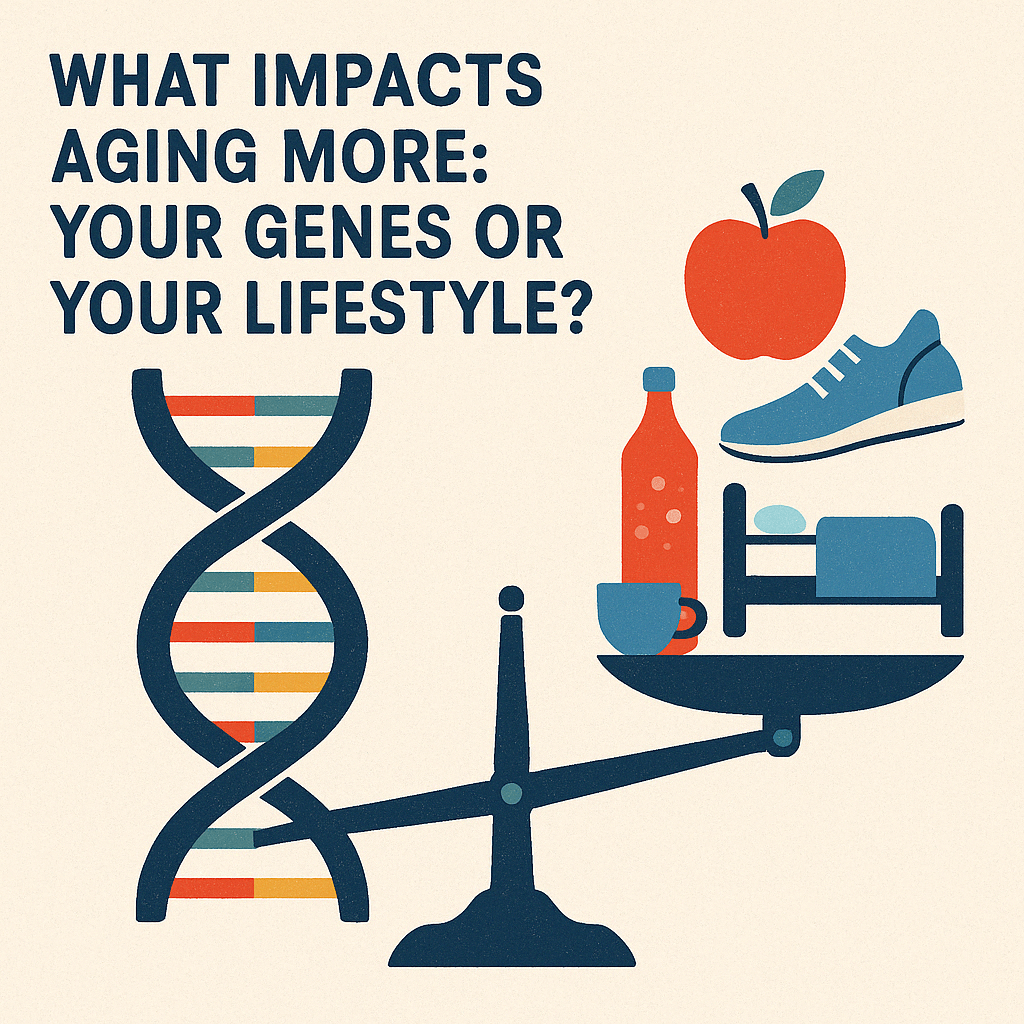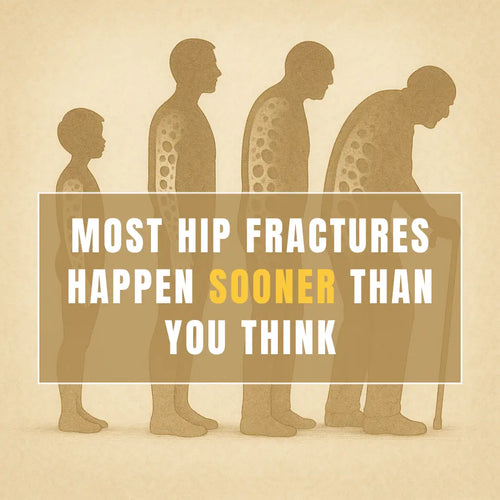
The Surprising Answer from New Research
We all know aging is inevitable. But how we age—and how soon—might not be as set in stone as you think.
A new study (Argentieri MA, et.al., 2025) published in Nature Medicine just dropped a bombshell insight: when it comes to aging and the risk of dying early, your environment and daily choices (the exposome) matter a lot more than your genes.
Let’s break it down.
What the Heck Is the “Exposome”?
Think of the exposome as everything you’re exposed to in life. That includes:
- Your diet
- Air pollution
- Exercise habits
- Sleep patterns
- Stress levels
- Even social relationships
Basically, it’s the full picture of your lifestyle and surroundings—everything that isn’t your DNA.
The Study: 492,567 People, Massive Data
Researchers analyzed nearly half a million people in the UK Biobank, then zeroed in on a group of over 45,000 to look at what they call a “proteomic age clock”—a fancy way of saying they used blood proteins to estimate biological aging.
Here’s the kicker:
Environmental exposures explained 17% more variation in early death than genetics.
That’s HUGE.
Polygenic risk scores (which estimate your genetic risk for diseases like cancer or heart problems) added less than 2% when it came to predicting who lives longer.
The Breakdown: What Affects Which Diseases?
- Genetics mattered more for cancers like breast, prostate, and colorectal, as well as dementias.
- Lifestyle and environment had a bigger impact on diseases of the lung, heart, and liver—up to 49.4%!
Translation? Your daily choices play a massive role in whether you’ll develop major age-related illnesses.
What This Means for You (Yes, You)
✅ You can’t change your genes, but you have control over your exposome—what you eat, how much you move, sleep quality, and even where you live.
✅ Start small: cut down on ultra-processed foods, get more sleep, reduce stress, and move your body.
✅ Your lifestyle literally affects how fast you age on a molecular level—and how long you live.
Bottom Line
Forget the idea that your health destiny is locked into your DNA. This research makes it clear: your environment and choices have a much louder voice in the story of your aging.
So if you’re aiming to live longer—and better—it’s time to stop blaming your genes and start taking control of what you can change.
Reference
Argentieri MA, Amin N, Nevado-Holgado AJ, Sproviero W, Collister JA, Keestra SM, Kuilman MM, Ginos BNR, Ghanbari M, Doherty A, Hunter DJ, Alvergne A, van Duijn CM. Integrating the environmental and genetic architectures of aging and mortality. Nat Med. 2025 Mar;31(3):1016-1025.









